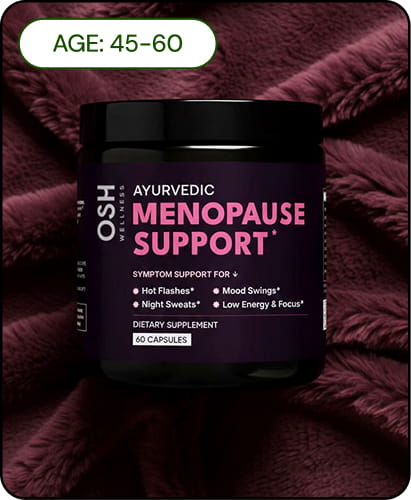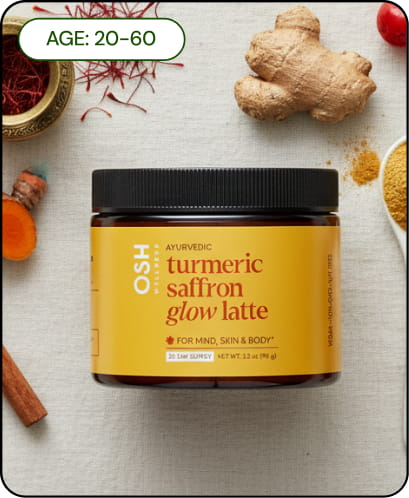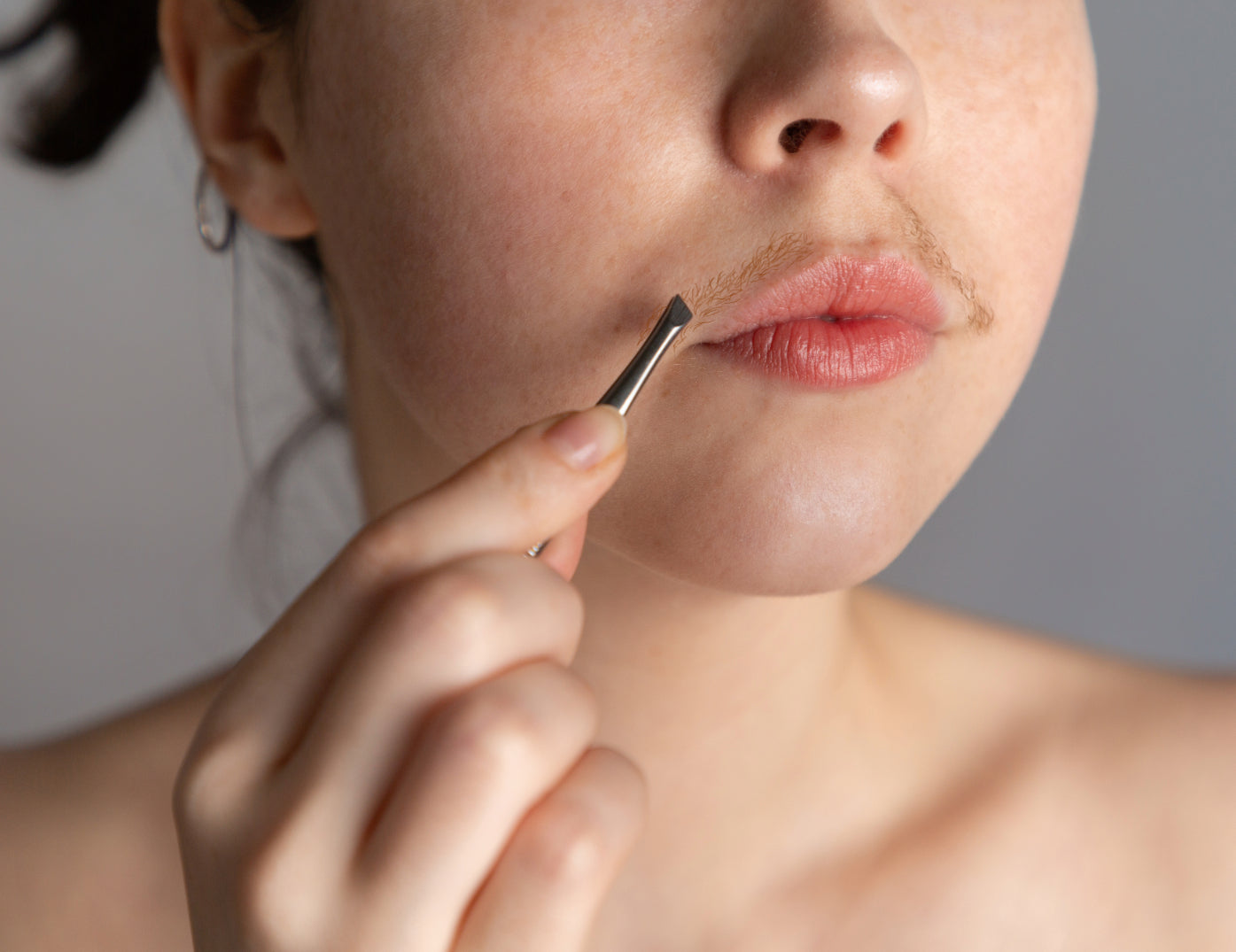Table of Content
If you’re a woman and notice a few facial hairs here and there, it’s pretty normal and nothing to stress about. But if you're noticing a lot more hair than usual in areas like your chin or upper lip, it could signal something more, such as hormonal imbalance. In this blog, we’ll dive into why some women experience more facial hair, what hirsutism is, and a few ways to manage it.
What’s Hirsutism?
Hirsutism is when women experience the growth of thick, dark hair in places where men usually do, like the face, chest, and back. It affects about 5-10% of women and is often due to higher levels of male hormones (androgens) , such as testosterone. Not only can excessive hair growth be distressing and affect self-confidence, but it can also hint at other health issues. Fortunately, there are plenty of ways to manage it, including medications and natural remedies.
Why Do Women Get Facial Hair?
There are various reasons why some women get more facial hair. Including:
Hormonal Imbalance
Sometimes, your hormones can get a little imbalanced, leading to more androgens than normal. This imbalance can make hair sprout up in places you’d rather it not, like your face.
Polycystic Ovary Syndrome (PCOS)
PCOS is a common reason for hirsutism, causing tiny cysts on the ovaries and, in turn, messing with hormone levels. This often leads to extra hair growth on the face and body, along with other symptoms like irregular periods and fertility issues.
Adrenal Gland Disorders
Conditions like congenital adrenal hyperplasia, Cushing syndrome, and adrenal tumors can also ramp up androgen production, leading to more body and facial hair. These disorders can come with other health problems like high blood pressure and muscle weakness.
Medications
Some medications can trigger hirsutism. Minoxidil, anabolic steroids, and certain topical products can lead to more hair growth. Even skin-to-skin contact with products containing androgens can have this effect.
Idiopathic Hirsutism
Sometimes, there’s no clear reason for the extra hair, referred to as idiopathic hirsutism . It is when you have regular periods and normal hormone levels but still experience excessive hair. This type makes up about 10% of all hirsutism cases.
Life Changes
Certain life events like pregnancy or menopause can also cause changes in hair growth due to shifts in hormone levels.
Home Remedies and Lifestyle Tips

Your lifestyle can play a big role in managing hirsutism. Here are some tips to keep in mind:
Eat plenty of antioxidant -rich foods like fruits and veggies.
Cut back on refined foods and sugar.
Choose lean proteins like fish, tofu, and beans.
Use healthy oils like olive or vegetable oil.
Stay away from trans fats, alcohol, and tobacco .
Drink lots of water – aim for 6 to 8 glasses a day.
Get moving for at least 30 minutes daily, five times a week.
Treatment Options For Women's Facial Hair
If lifestyle adjustments aren’t enough, other treatments can help manage unwanted hair.
Hormone Management

Balancing your hormones can reduce hair growth. This might involve treating conditions like PCOS or adrenal disorders with medications and making some lifestyle changes, such as losing weight.
Medications

Several medications can help manage women's facial hair. However, it is important to consult your doctor before starting any medical treatment as these can have potential side-effects.
Oral Contraceptives : Birth control pills can help lower androgen levels and reduce hair growth.
Anti-Androgens : These block androgens from working in your body. Spironolactone is a common one used to treat hirsutism.
Topical Creams : Eflornithine cream can be applied to help slow down new hair growth on your face.
Herbal Treatments

If you prefer natural options, herbal supplements may help balance hormones and tackle symptoms of PCOS, including excessive hair growth. Herbs like spearmint, saw palmetto and green tea have shown promise in reducing hirsutism. Various other herbs, including fennel, licorice, a combination of Zingiber and neem, curcumin, and teupolioside also have the potential to combat hirsutism [1]. Traditional botanical herbs like Ashwagandha root, Shatavari root, and Gokshura have proven beneficial in managing PCOS, one of the underlying causes of hirsutism.
Carefully curated supplements like Osh Wellness Homone & Mood Support featuring a unique blend of ingredients can support hormonal health and, in turn, reduce hormonal imbalance symptoms like unwanted hair growth.
While these supplements are generally considered safe with little to no side effects, you may still want to consult your doctor before starting any new supplement routine.
The Bottom Line
Managing facial hair and hirsutism often means looking at the bigger picture. While diet and exercise can help, sometimes you need a little extra support from medications or supplements. With the right plan, most women can keep their hair growth in check and feel good about themselves.
FAQs
How can a woman stop facial hair growth?
To manage facial hair growth, a woman can try the following:
Eating a healthy diet.
Limiting alcohol consumption
Including antioxidants like vitamins C and E in the diet to help regulate hormones.
Managing hormone levels through birth control pills, anti-androgens, or other medications.
Improve sleep quality by maintaining a consistent sleep schedule.
Engaging in stress-reducing activities like yoga, meditation, or deep breathing.
Exercising regularly helps reduce androgen levels and improve overall health.
What causes facial hair in a woman?
Facial hair in women is often caused by hirsutism, a condition characterized by excessive dark or coarse hair growth in a male-like pattern. Hirsutism is typically caused by an increase in androgens, such as testosterone and androstenedione, which can be due to various factors like polycystic ovary syndrome (PCOS), adrenal gland disorders, or certain medications.
What is the best way for a woman to remove facial hair?
The best removal method depends on an individual's preferences and needs. Here are some of the ways a woman can remove her facial hair:
Shaving
Tweezing
Waxing
Epilating
Threading
Sugaring
Dermaplaning
Laser hair removal







